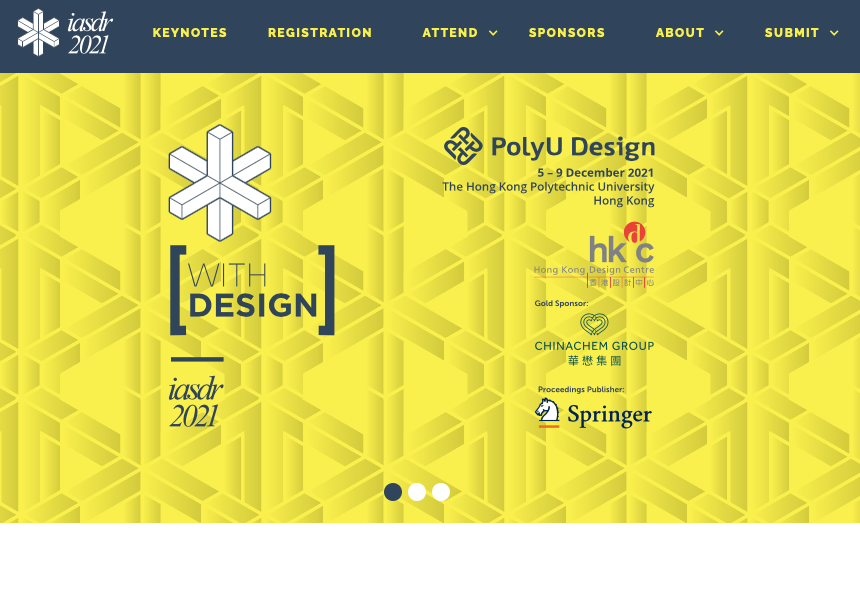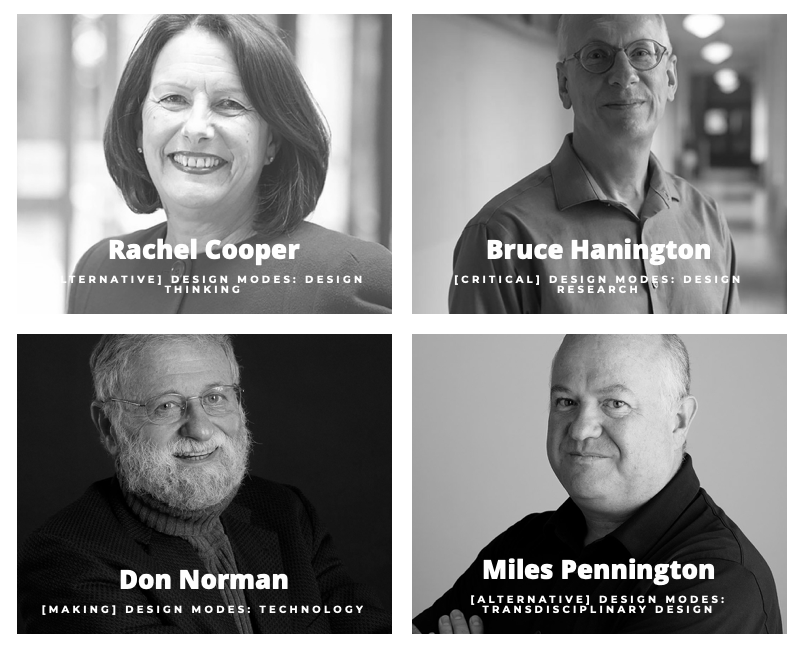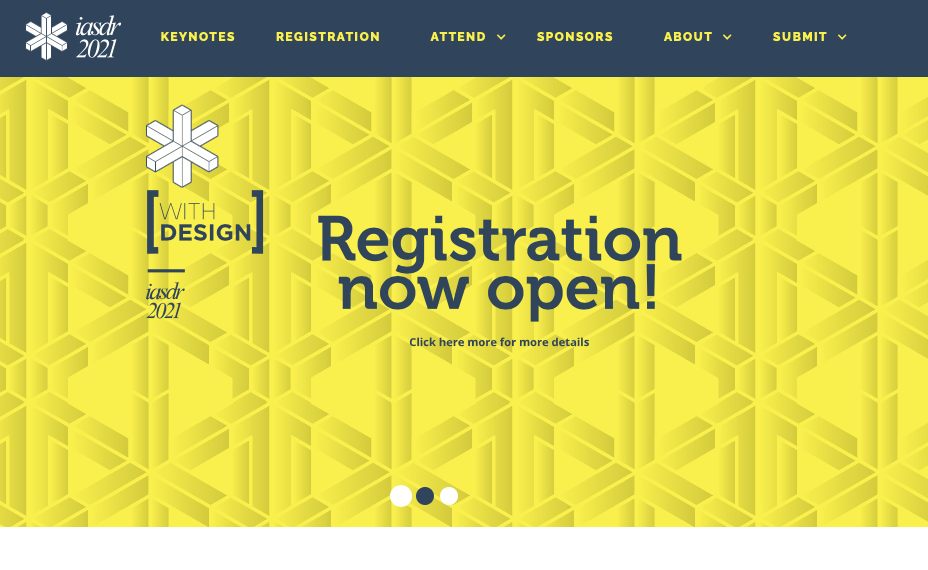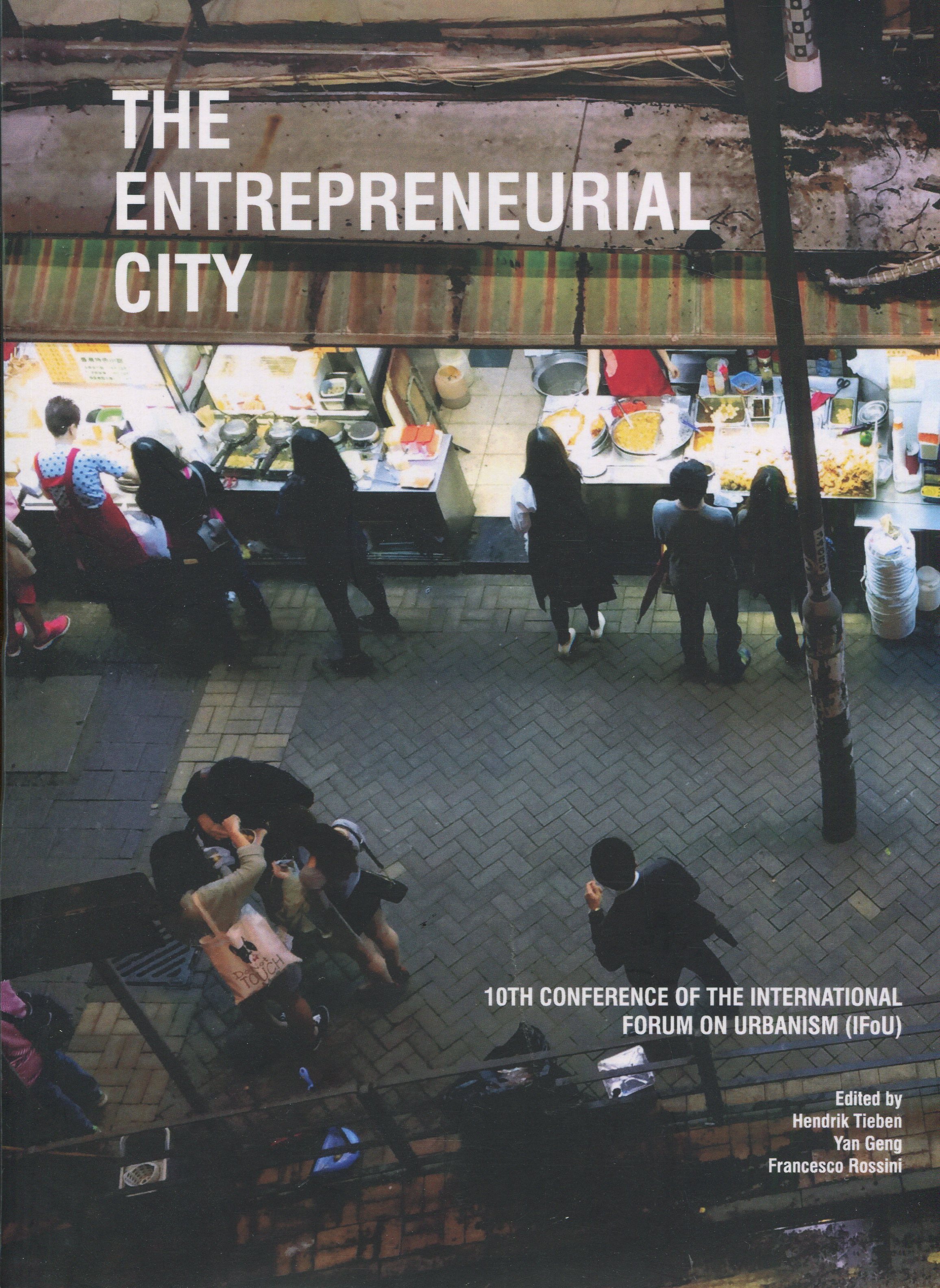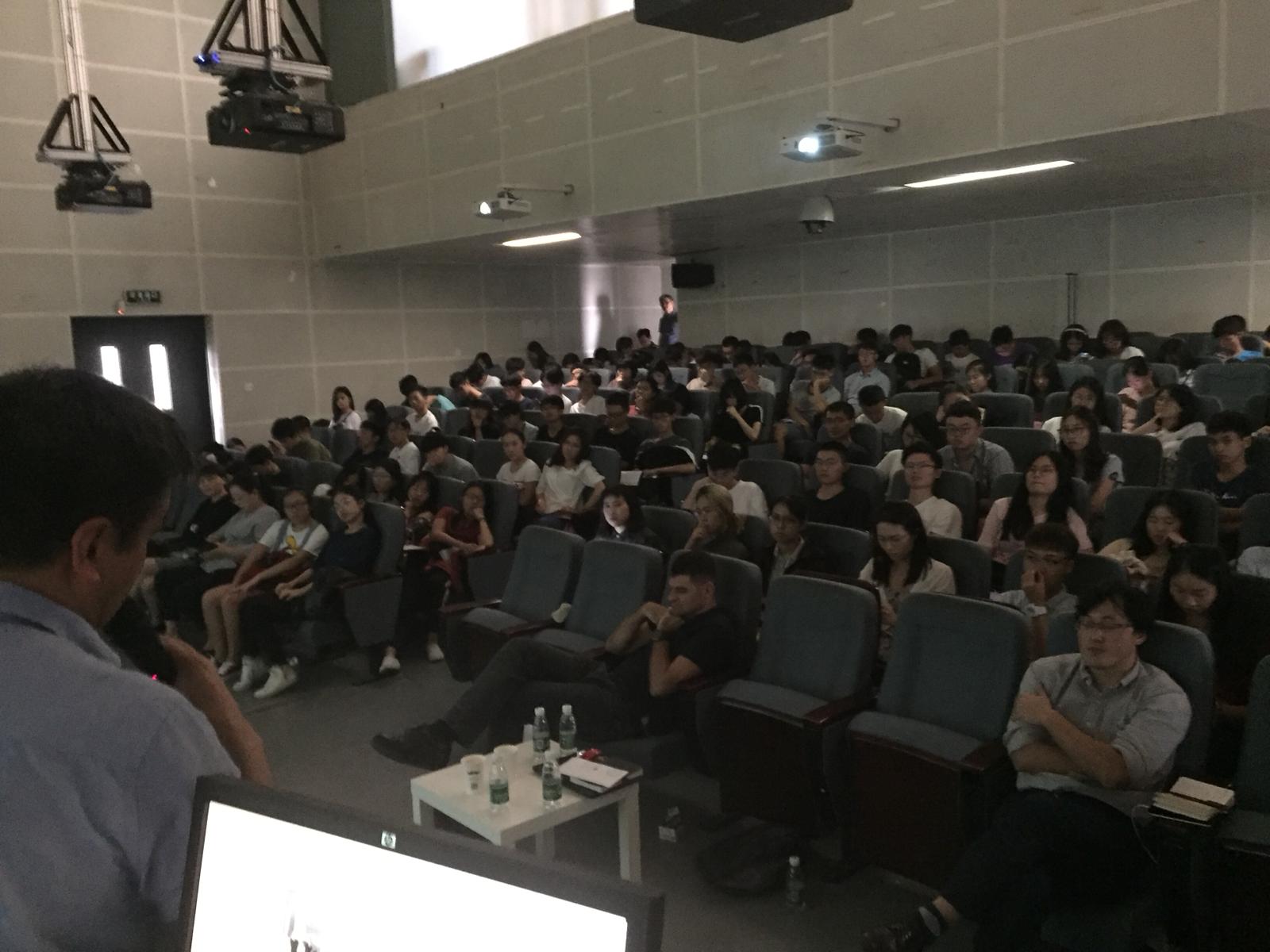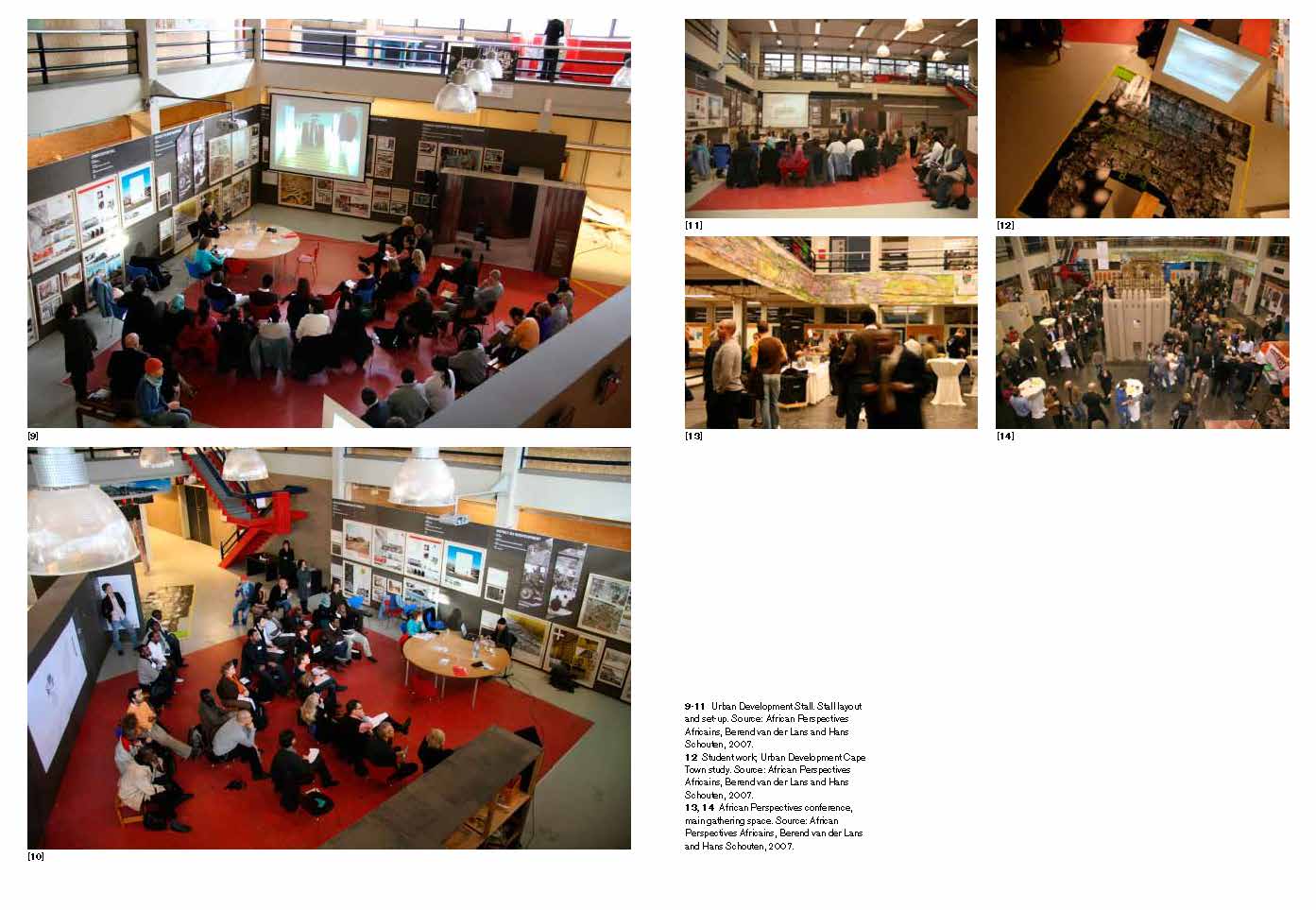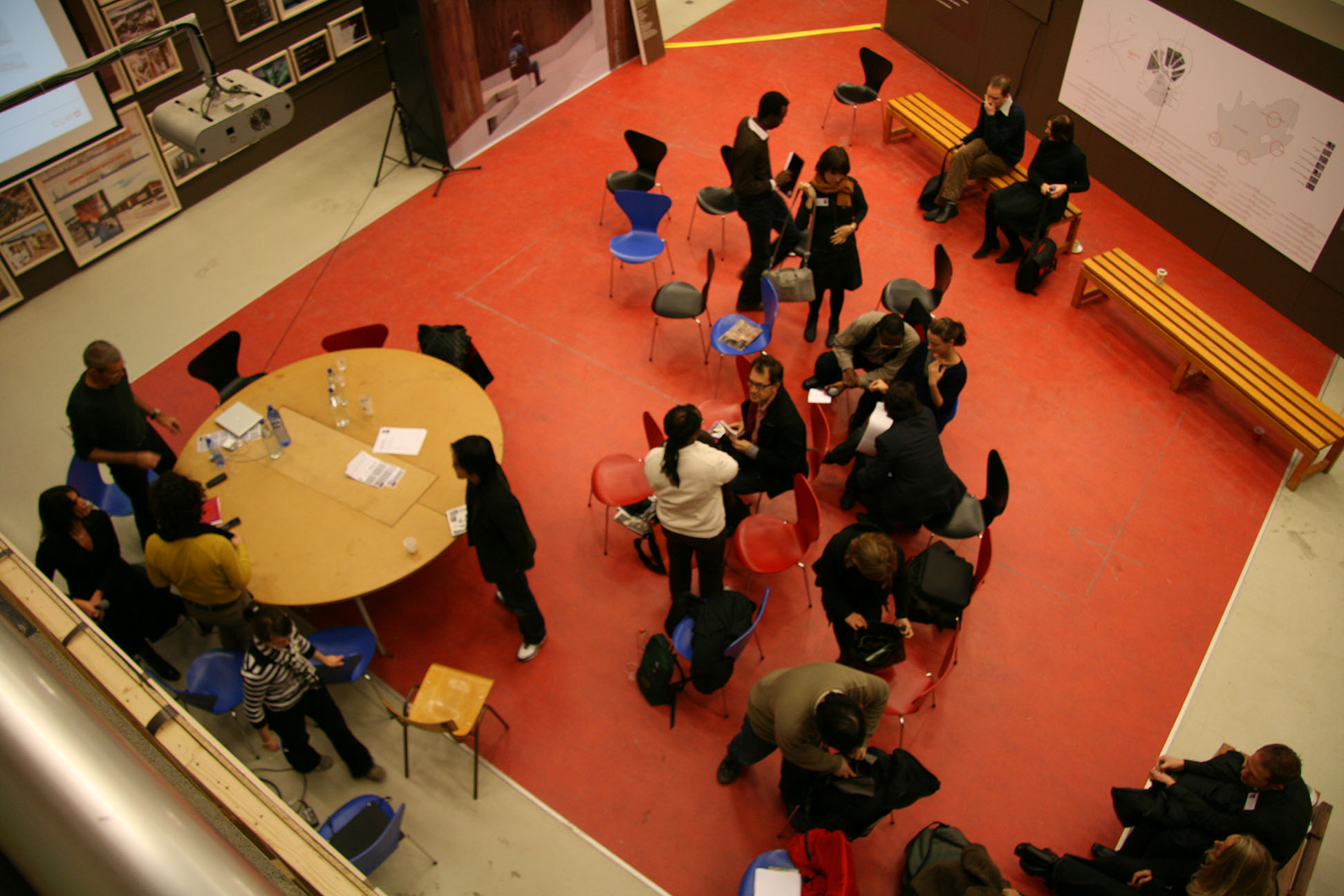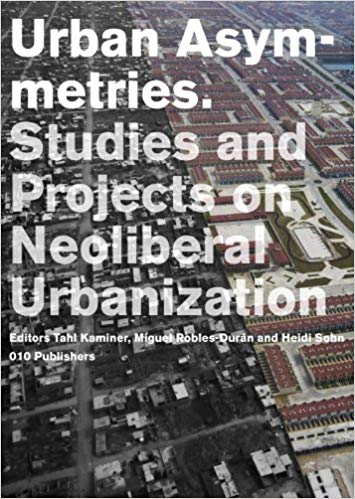Praxis
[ _ ] With Design: Reinventing Design Modes
Programme Co-Chair
IASDR 2021 is the ninth Congress of the International Association of Societies of Design Research. The overarching theme of IASDR 2021 is ‘[ _ ] With Design: Reinventing Design Modes’. Design finds itself at a critical moment where the conventional ‘modes’ of doing, thinking and application are increasingly challenged by the troubled ideology of globalisation, climate changes, migration patterns and rapid restructuring of locally driven manufacturing sectors. In addition, the wider call for design to become more open and more cross- and trans-disciplinary has further blurred boundaries between disciplinary and knowledge domains, challenging both design discourses and designers to steer praxis and thinking across unchartered territory for the sake of innovation and advancing research. In combination with the environmental, cultural, technological, and, crucially, pandemic transitions, the call heeds for design at large to fundamentally alter its modes of practice. Beyond the conventional models of conducting research, or developing solutions to ‘wicked’ problems, the recoupling of design with different modes should be seen as an expression to embrace other capacities of thinking, criticisms and productions. The coupling of DESIGN with SOCIAL, MAKING, BUSINESS, CRITICAL, HISTORICAL/PROJECTIVE, IMPACT, PANDEMIC and ALTERNATIVE MODES necessitates the rescripting of all aptitudes and practices. ‘[ _ ] With Design: Reinventing Design Modes’ encourages design researchers to discuss, elaborate and investigate emerging modes of design research that transcend disciplines in order to serve a multitude of goals and scales. This overarching theme wishes to solicit the definition of new frameworks, models, methods, products and unexpected outcomes in this questioning of design futures.
Made in Hong Kong
IFOU | POLYU HK | CUHK | Columbia University
The ‘Special Administrative Region of Hong Kong’ has always been an ‘island of entrepreneurism’ (Clinton, 2014). Historically known as a ‘market city’ (Ohno, 1992) with a prominent industrial history, the city has secured its prominence as one of the ‘Asian Tiger’.
In its development Hong Kong has embraced amplifying levels of excessiveness, accepting neoliberal directives that have allowed for ‘manic’ density and hyper consumerism. Under the ‘one-country-two-system’ Hong Kong’s entrepreneurial position has come under question with the ‘emptying out’ (Yeh: 2006, Lin: 2011) of manufacturing services that has, since 1997, impacted all facets and aspects urbanity for, both the city and the Guangdong Regional Economy. A city once known for its “Made in Hong Kong” legacy through its plastic flowers industries, electronic goods and clothing, the city presently relies on a knowledge economy and ‘other’ forms of entrepreneurial endeavours to sustain its competitive edge amongst other Asian hubs. Moreover, the ever-increasing pressure placed on Hong Kong as a ‘locale of making’ by the manufacturing industries of neighbouring cities, such as Shenzhen, has resulted in the transformation of Hong Kong into an unaffordable and inflexible city.
As link between the IFOU 2017 conference entitled 'The Entrepreneurial City' and the School of Design’s Environment and Interior Unit’s ‘Made in Hong Kong’ research portfolio, this interactive colloquium invites participants to challenge as well as present endeavours that current feed into contemporary urban entrepreneurism’s. Each participant will be invited to present work, research or entrepreneurial endeavours in a chosen 15 by 15 format (15 slides for 15 seconds per slide).
PhD Seminar Winter and Autumn Sessions | School of Design | 2018
Conveners: dr.ir. Gerhard Bruyns & dr. Hanna Wirman
Theme: THE COMMONS - Design Social . Design Economies . Design Making
“ As conveners we hope to, in each of the three instances of Design Social, Design Economies, and Design Making to, not only expand on the notion of the commons but, to provide an opportunity to reconsider practices of design, thinking, and making against larger paradigms of thought. With the participation of Uta Brandes, Peter Lloyd and Thomas Fischer we hope to magnify the link beyond the normative concepts and conditions that link, challenges as well as alter design thinking, and its link to the commons. Design is therefore challenged to better articulate ways forward, in both its analytic and synthetic conditions of design praxis.”
E&I Lecture Series
Themes: Varies per year - 60M2 | Urban Interiority | Made In Hong Kong.
As part of the School of Design’s critical enquiry on design related aspects, the ‘EID Lecture Series’ explores diverse and sometimes radical design position taken within a current spatial paradigm. Occupying a unique position in Asia, Hong Kong as a city-territorial model, is representative of highly specific urban-architectural realities generated by explicit developmental prototypes, transformation processes and new modes of urbanization. This poses a number of unique critical questions and problematics related to use, space and habitation and density with far reaching implications in terms of future aspects of urban dwelling, trends and critical design positions taken by urban, architectural, interior, landscape and urban designers.
Whether overshadowed by the aspects of ‘mega’ projects or that of policy realignment for adaptive reuse, or, questioning architecture as stabilizing political dwelling mechanism, the questions become core drivers to a larger spatial discipline. The EID Lecture Series aims to bring together individuals, disciplines, questions, policies and design related themes within a framework that challenges, debates and critiques conventionality and extremes amongst peers, professionals and experts. Compulsory for all senior undergraduate School of Design students, it is open to any interested individuals.
UIA - Architecture Otherwhere
The UIA 2014 International Student Competition explores WARWICK JUNCTION, a unique location within central Durban.
This vibrant transport node provides a setting for predominantly informal traders at an unprecedented scale. The competition aims to recognise the complex systemic ecology that underpins the economic, cultural and social dynamics inherent to this area, and to find ways to strengthen, reinforce or expand these systems in a beneficial way.
Drawing from the three UIA 2014 Congress sub-themes of RESILIENCE, ECOLOGY, VALUES, this competition aims to explore OTHER practice, crossovers between OTHER disciplines, and an engagement with OTHER urban dwellers. The competition encourages the exposure of OTHER city layers, bringing to light OTHER views and OTHER ways of inhabiting the city - through architectural interventions, which should improve the daily experiences of urban dwellers.
In addition, the fostering of a long-term collaborative relationship between the architectural profession, government, communities and relevant development partners should be seen as a key aim.
Finally, the competition brief makes allowance for inspiration to be drawn from global charters and contemporary enterprises - specifically, the COP 17 Built Environment Charter.
African Perspectives Africaines
AFRICAN PERSPECTIVES event acts as a stimulus to inspiring dialogue between Africa and the Netherlands on architecture and urbanism
On 6, 7 and 8 December 2007, TU Delft’s Architecture Faculty will form the backdrop to a unique, international event: ‘African Perspectives, dialogues on Urbanism and Architecture’. This three-day event is a joint initiative of the Architecture Faculty and the ArchiAfrika foundation and aims to promote an inspiring exchange of expertise and experience between African and Dutch colleagues in the field of Urbanism and Architecture.
The motivation behind this initiative is TU Delft’ s 165th anniversary. This year’ s theme is ‘Sustainable Solutions, focus on Africa’. This is the context for the African Perspectives event; a marketplace in which architects, urban planners and other professionals, academics and students from around the world can meet. The idea is for African Perspectives to act as a stimulus for the future structural exchange of experience with respect to architecture, urban development, housing, urban heritage and the explosive growth of large cities on the African continent.
The event concept and programme have been devised by Wytze Patijn (Dean, Faculty of Architecture, TU Delft), Antoni Folkers (ArchiAfrika) and Paul Meurs (TU Delft). During the event, five perspectives which correspond to a number of specific processes in Africa will be discussed in detail. Each perspective is led by a team comprising an African architect/academic together with a Dutch counterpart:
1. Urban Development: programme on urban evolution in Africa
Led by Iain Low (Cape Town University), Arie Graafland (TU Delft) and Gerhard Bruyns (TU Delft)
2. Architectural heritage: programme on built cultural heritage in Africa
Led by Samuel Sidibé (director, Musée National de Mali), Pierre Maas (architect) and Paul Meurs (TU Delft)
3. Building in Africa: programme on construction technology in Africa
Led by Joe Addo (architect in Ghana and th USA) and Fons Verheijen (TU Delft)
4. African Diaspora: programme on the African diaspora in Europe.
Led by Ola Uduku (Edinburgh College of Art, Scotland), Wytze Patijn (TU Delft) and Hein de Haan (TU Delft)
5. African Architectures: programme on the definition of African architecture
Led by Abdel Benabdeljalil (Ecole Supérieure d’Architecture de Casablanca, Morocco) and Tom Avermaete (TU Delft)
Each perspective has an accompanying programme of workshops, lectures, debates and exhibitions which are brought together at the event. The full programme can be found on www.africanperspectives.nl.
Urban Asymmetries
The Urban Asymmetries research group, places emphasis on the analysis of the material consequences of political economy, urban policies and practices in developing regions and diverse contexts, investigating the 'thin-line' that is produced within an asymmetrical urban condition. The focus is on simultaneous, but diverting, processes from a critical angle, and using the tools available to design disciplines the analysis and research critiques mutations of contemporary urban environments.
Among specific topics, studios focus on the 'formal' (as manifested in the homogenization and uniformity of large-scale, low-density housing developments that conform the majority of contemporary urban sprawl, for example, or the demand for formal difference and spectacle which dominates city centres), or assess the challenges brought about by the encroachment and consolidation of asymmetrical processes which nurture conditions in urban landscapes such as the 'informal city', ‘slumming’, incoherent peripheral formations and edge city conditions.
This studio deals with these and other phenomena from a perspective that includes more than the architectural and urban domains alone (in scope, program, and scale), extending the investigations to encompass other disciplines and fields as well, such as sociology, urban geography and urbanism. In other words, we theorize architectural and urban action, investigating and exploring a wide range of possibilities that may function as alternatives or counter-proposals to the present urbanization trends occurring in cities.
IFOU [ ICON] Consultancy
IFOU CONSULTANCY (ICON) found its roots within the extensive expertize network of the International Forum on Urbanism (IFoU), a non-profit foundation and think tank, established in the Netherlands and operational since 2004. As a foundation the IFOU represents a platform, the material realization of collaboration between foremost Asian and European universities as leaders within the fields of urbanism, research and urban development. Years of debate within the IFOU framework, and in view of the need of knowledge exchange on spatial development within the more critical global context and non-occidental urban development has rendered visible the demand for an integral approach with regard to urbanism. In line with this, as well as in order to bridge the gap between ‘knowing’ problems [problem identification] and providing solutions, IFOU CONSULTANCY (ICON) advocates an approach that specifically seeks integral urbanism [urbanization] framework. Integral urbanism can be defined as a two-sided tool, expressed through [a] research and [b] design. At first it is necessary to utilize research and design, by introducing research-by-design and design-by-research concepts into the spatial development and the profession of urbanism.
